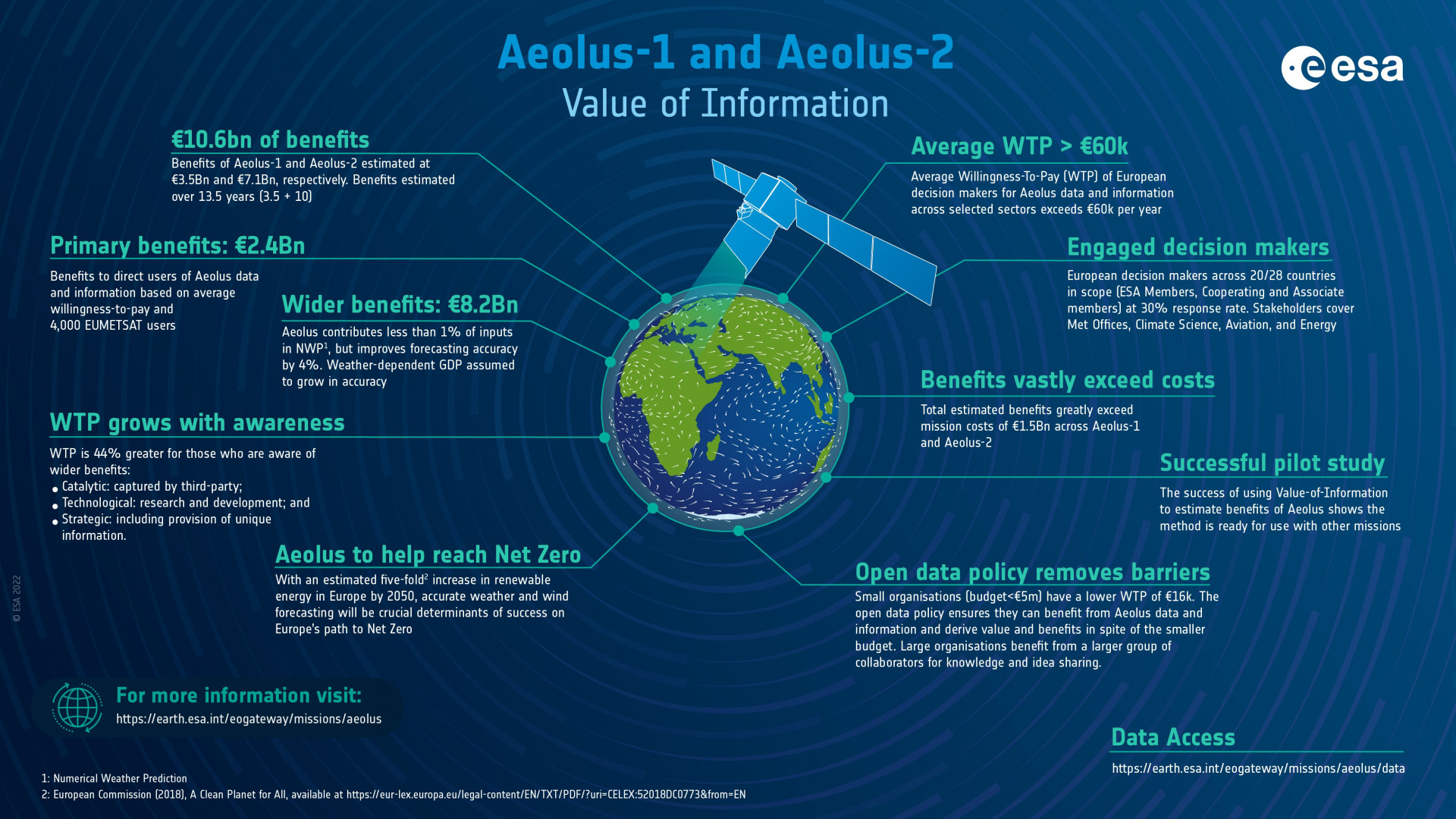
Valuing the benefits of ESA Aeolus missions to European decision makers • Jul 2022
Earth Observation data carry a wealth of information that can
contribute to interpreting geophysical phenomenon. Raw data once transformed
into information can support agents solving problems by supplying actionable
intelligence that reduces the uncertainty of a decision.
Aeolus is ESA’s fifth Earth Explorer mission, set out to demonstrate
how new space borne laser technology can profile Earth’s winds to understand
how wind, pressure, temperature and humidity are interlinked, contributing to
climate research and to forecasting the weather. Aeolus data helps to fill
significant existing gaps in the global observation system which contributes to
NWP models. These gaps include the poles, oceans, and upper troposphere, which
lacked wind profile measurements.
A study by economic consultancy London Economics was
conducted to assess the value generated by the demonstration mission Aeolus-1
and the follow-on operational mission Aeolus-2. This study is a pilot which
also strives to demonstrate the utility the Value of Information (VOI)
framework applied to EO missions. The analysis values the benefits of Aeolus to
European decision makers and a survey was sent to European Organisations from
28 countries and Supranational Organisations.
The study finds that:
- Free and open data access reduces the barriers to adoption of data and therefore increases user uptake. Without such policy, budget constraints would be preventing the Value of Information to trickle down in the entire value chain of the European economy.
- Aeolus observations have been used to understand and predict extreme weather variations in Europe and North America.
- Major improvements were made in data availability at the poles and the equator. In these regions, the mean error between predictions and observations was reduced by more than 4% only with the addition of Aeolus.
- Aeolus data has filled a gap left by the aviation sector during the pandemic. With fewer flights, measurements from air traffic reduced accordingly. Fortunately, Aeolus was operational, and the data captured was used to maintain the data input to weather forecast model to a reasonable level.
- Aeolus carries the opportunity to support future European non-dependence on energy production.
- The total benefits of Aeolus-1 data and information to European stakeholders and society elevates to €3.5 billion over its lifetime. Aeolus-2 could generate €7.1 billion over the expected designed lifetime.
The full study report can be accessed in the restricted area
here (please log in before).
The executive summary can be accessed in the restricted area
here (please log in before)
The infographics can be accessed in the restricted area here
(please log in before).
